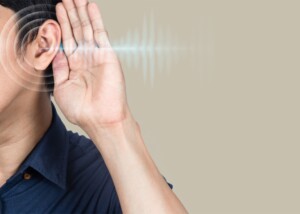
Yes, Accutane can definitely cause tinnitus, as was the case of a 15-year-old boy who developed the ringing in his ears.
Tinnitus has been commonly described as any of the following sounds that only the sufferer can hear in the case of subjective noise:
• Very high frequency, steady tone; can be very subtle to obvious.
• High pitched but soft hissing or buzzing.
• Chirping, crackling, tinkling, clicking sounds.
Case Report of Accutane Causing Tinnitus
The Case Reports in Medicine journal (Nov. 24, 2011) details a case of a teen boy who was prescribed Accutane for acne who developed tinnitus. He’d had no prior history of this symptom.
Side effects from this acne drug that affect hearing occur at a rate of less than one patient per 10,000, according to the FDA.
The boy was put on 30 mg/day of Accutane for six weeks. At the six-week follow-up he was reporting tinnitus in both ears. (Tinnitus in only one ear is suspicious for a brain tumor).
The teen had no history of issues that could possibly cause or be connected to the tinnitus, such as taking another medication, head trauma, headache or dizziness.
A neurological as well as ear exam were normal.
It’s well-known that certain medications can cause tinnitus (the so-called ringing in the ears), so the teen’s doctors, based on his history and exams, suspected that the acne drug was responsible.
The drug was promptly discontinued. The teen reported fast improvement subsequent to that, and 15 days later showed only minimal alterations relating to his hearing.
The CRM report points out that there was another case, published in the Journal of the Medical Association of Thailand, of a woman who experienced sudden hearing loss plus tinnitus in both ears after one week of being on Accutane. Her situation improved after the dose was lowered.
Likelihood of Accutane Causing Tinnitus in the Teen
The study authors assigned a score of five to the likelihood.
This score is based on the Naranjo probability scale for adverse drug reactions.
A score of nine or above means “definite,” and a score of five to eight means “probable.” A score of one to four means “possible.”
The authors note that they did not have any objective evidence aside from the ear examination, because only after the teen had improved did he have an audiometry exam done.
Conclusion
The paper explains that if someone develops tinnitus while taking Accutane, “it seems reasonable to think that the drug could induce nerve conduction alteration.”
A thorough examination including audiometry and auditory evoked potentials is warranted, along with termination of the drug.









































